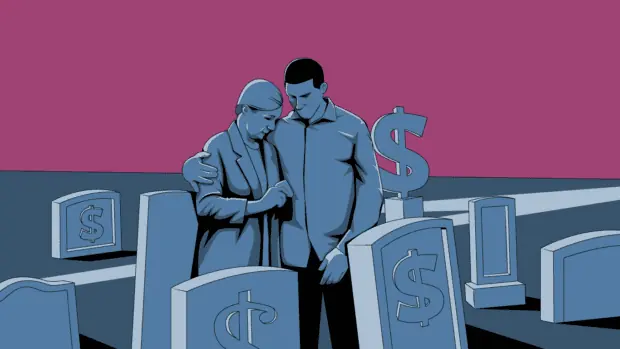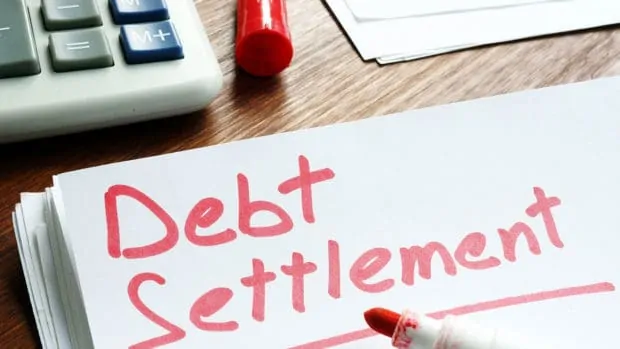Cosigning a car loan to help one of your kids who’s just starting out and hasn’t built enough credit to get approved may not seem like a big deal. After all, maybe your parents did the same for you when you were young. Or maybe a friend trying to rebuild his credit is the one asking you to cosign. Before you sign, however, make sure you know the potential pitfalls of putting your name on the dotted line for someone you care about.
When you cosign a loan, you’re ultimately on the hook for the loan amount if the other person falls behind or defaults. Keep in mind that no matter how much you trust the other person, or how responsible he or she is, life happens. People lose jobs, have unexpected medical bills, or may have to choose between paying for an expensive car repair or making loan payments.
Make sure you give serious thought to the idea of cosigning a loan for someone else. Otherwise, that signature could come back to haunt you if times get tough for the person you’re trying to help get a leg up on building good credit.
Here are five pros and cons of cosigning a loan…
Pro: You’re helping another person
Of course, you want your daughter to have a late-model car with all the newest safety features when she heads to college. Just like you want to help a good friend get back on his feet after losing his job and damaging his credit when he fell behind on bills. Helping someone build good credit by cosigning a loan can change that person’s life for the better, so that’s a big pro.
Unfortunately, that’s the only pro of cosigning a loan: The other person benefits. He or she can build good credit by making timely payments so that next time, no cosigner is needed. If the person you help makes all the payments and pays off the loan, you can both feel good about your cosigning experience. If that doesn’t happen, however, the pitfalls of cosigning will soon outweigh this benefit.
Find out: How Bankruptcy Affects You as a Cosigner
Con: You could get stuck paying the loan
The plan when cosigning is for the borrower to make monthly payments on time and pay off the loan. However, if that person misses payments or defaults, when you’re the cosigner, you’re the one who’s ultimately responsible for paying the debt. So, if your daughter misses payments, the bank will be calling you to set things right.
You may think you could handle those extra payments if you have to, but what if you have thousands of dollars in unexpected home repairs during the same year she’s struggling? No matter what, you’re still responsible for paying that loan, and if you can’t make the payments, get ready for the worst con of all: Damaged credit.
Con: Your credit could take a hit
Does cosigning hurt your credit? As a cosigner, it’s your good credit that’s backing that loan. But if the person who took out the loan missed payments without telling you, that late payment history goes on your credit report. If the borrower stops paying altogether, you’ll hear from the bank, but some damage to your credit may already be done. Plus, you now have to pay the loan yourself. Otherwise, your credit will suffer due to defaulting.
Find out: What Rights Does a Student Loan Cosigner Have?
Con: You might get turned down for credit
When applying for credit cards or loans, credit card issuers and banks look at what’s called your debt-to-income ratio to determine approval and the credit limit or loan amount for which you qualify. If you’re a cosigner on a $20,000 car loan, that’s going to raise your debt-to-income ratio, causing some creditors to back away because they think you have too much debt.
“Depending on how much debt you already have, the addition of the cosigned loan on your credit reports may make it look like you have more debt than you can handle,” according to major credit bureau Equifax. “As a result, lenders may shy away from you as a borrower.”
Find out: 5 Steps to Take if You’re Denied Credit
Con: The relationship could go south
As much as you may want to help another person by cosigning a loan, keep in mind that if things don’t go as planned, your relationship can suffer. For example, it’s pretty hard to go out for a beer with a buddy who stuck you with a $10,000 loan. And a defaulting daughter at the dinner table makes for an awkward holiday. So, the only way you can get around this potential pitfall is by considering the loan a gift if you end up paying it off and forgiving the other person’s irresponsibility. If you aren’t up to that task, it’s probably best to not cosign a loan.
Find out: How to Support Family and Friends with Money Without Facing Debt Problems
Bottom line
Cosigning a loan benefits the other person, but you could end up on the hook for the full amount if he or she doesn’t come through on payments. Before cosigning a loan, sit down with the borrower and find out more about that person’s financial situation and ability to pay back the loan. If you decide to cosign, make sure you can afford to take over payments if the borrower disappoints.






